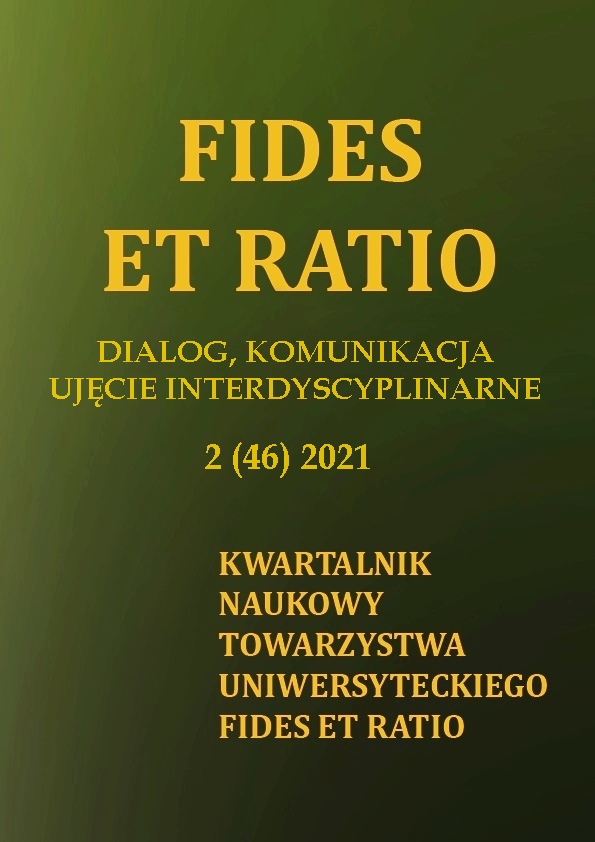Abstract
Cardinal Stefan Wyszyński was not only an “unbreakable Primate”, but above all, a man of dialogue. He was able to meet every person and to talk to them. In his conversations, he listened patiently, he did not impose his opinion and he was mostly trying to seek for common levels of agreement. According to him, the greatest wisdom is to be able to unite, not to divide.
The article indicates some sources and forms of this dialogue. It was a supernatural source and
a natural one. The first one is a permanent dialogue of the Primate with God, as well as with the Blessed Mother and with saints. Cardinal Wyszyński was a man of deep prayer, and he undeniably took from this source strength for everyday meetings, conversations, and making decisions. The second crucial source was his philosophico-theological education. As a Christian personalist, the Primate took from the achievements of such thinkers as Aristotle, St. Thomas, St. Augustin, as well as J. Maritain, G. Marcel, J. Woroniecki, and W. Korniłowicz.
The article discusses some aspects of dialogue with people, taking into account, above all, two social groups: youth, and , and representatives of the communist state power. Presenting Cardinal Wyszyński as a man of dialogue seems to be very useful and topical nowadays because of different controversies and disputes occurring in our state, in our Church and in relationships between the older and the younger generation.
References
Kąkol K. (1985). Kardynał Stefan Wyszyński jakim go znałem.
Lewandowski J. (1989). Naród w nauczaniu kardynała Stefana Wyszyńskiego.
Piasecki B. (1982). Ostatnie dni Prymasa Tysiąclecia.
Piętka B. (2020). Polityczny realizm prymasa Wyszyńskiego, Przegląd 16 (1058),
https://bohdanpietka.wordpress.com/2020/04/15/polityczny-realizm-prymasa-wyszynskiego/ [accessed 15.04.2020].
Rafiński N. (1979). Stefan Kardynał Wyszyński, Karol Kardynał Wojtyła: Spotkania w Republice Federalnej Niemiec.
Rastawicka W. Dziedzictwo Stefana Kardynała Wyszyńskiego, https://wyszynskiprymas.pl/dziedzictwo-stefana-kardynala-wyszynskiego [accessed 15.05.2020].
Strzeszewski Cz. (1990). Kardynała S. Wyszyńskiego wizja Kościoła i państwa
Wyszyński S. (1993-2019), Dzieła zebrane, vol. I-XX/
Wyszyński S. (2001). Zapiski więzienne.
